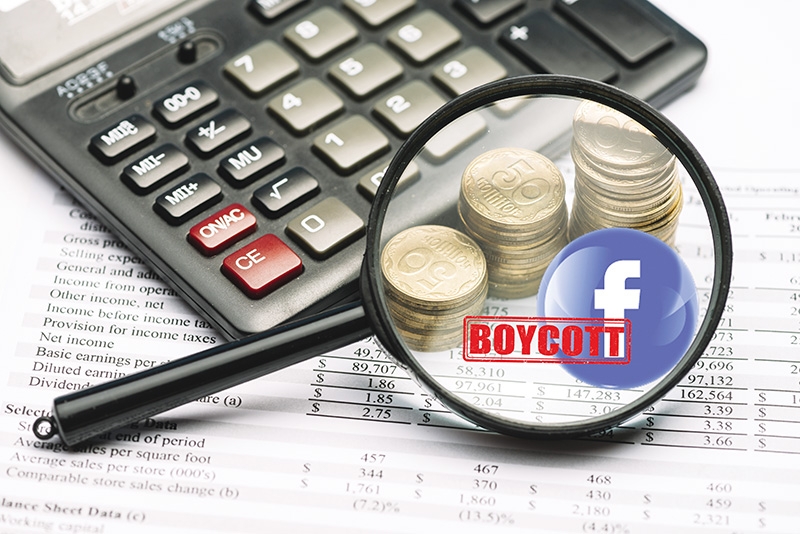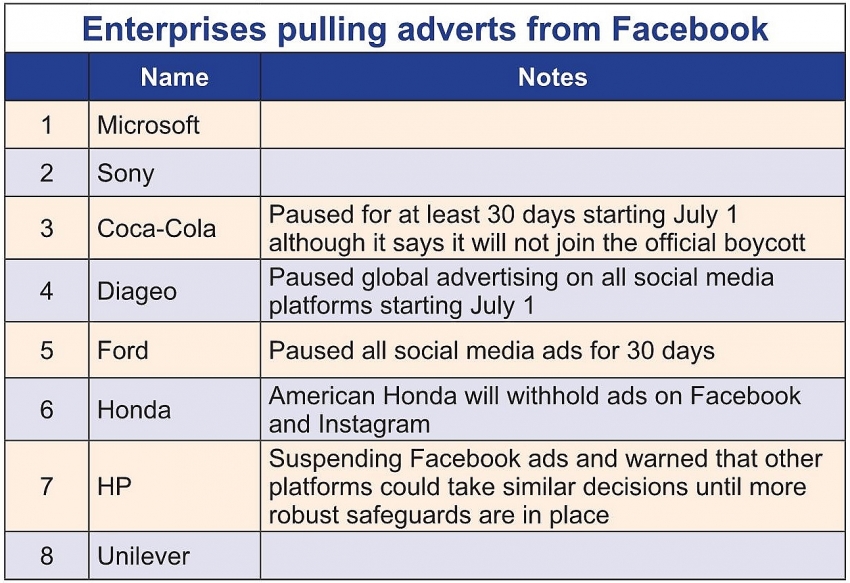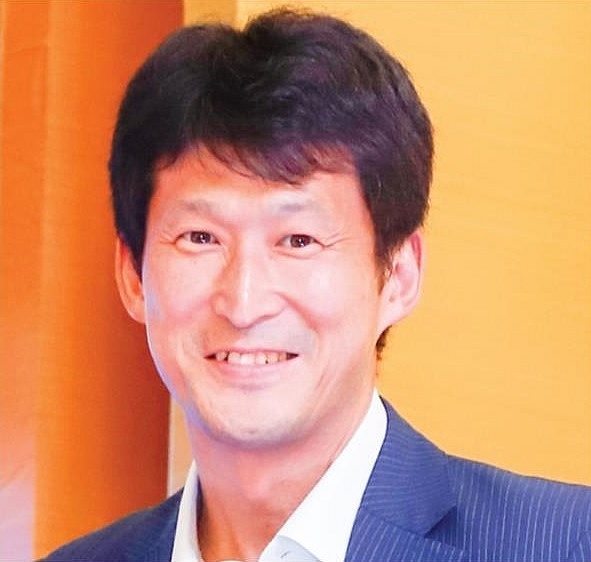Flummoxed Facebook braces for an advertising revolution
 |
| Flummoxed Facebook braces for an advertising revolution |
The social media leader has long been criticised for not doing enough to combat hate speech and misinformation, but a new campaign is threatening to change that. Hundreds of companies have promised to halt advertising on Facebook and its sibling platform Instagram as part of month-long boycott officially set to begin this week, according to the civil rights groups behind the protest.
The campaign may not only affect the US market, but Asia and beyond too, putting increasing pressure on Facebook’s public image and trust factor.
Ever-larger advertisers have joined a boycott of Facebook, with some of the world’s biggest brands pushing pause on their ad purchases. By late last week, more than 150 brands and organisers announced or were planning to pull advertising from Facebook, which makes around 98 per cent of its nearly $70 billion annual revenues from advertising, as part of the Stop Hate for Profit campaign. Microsoft, Pepsi, Ford, Starbucks, Coca-Cola, Unilever, Adidas, and Reebok are just some of the high-profile names to make such moves.
Coca-Cola, which is reported to spend as much as about $4.24 billion annually in marketing, is halting all social media postings along with any advertising for at least 30 days as of July 1. CEO James Quincey stated on its website, “We will take this time to reassess our advertising standards and policies to determine whether revisions are needed internally, and what more we should expect of our social media partners to rid the platforms of hate, violence, and inappropriate content. We will let them know we expect greater accountability, action, and transparency from them.”
In Vietnam, Coca-Cola Vietnam confirmed that its action of stopping advertising on social networking platforms for at least 30 days came from Coca-Cola Group. Therefore, representatives in Vietnam will spend time meeting and re-planning its advertising strategy under the new decision.
A representative of one global tech solution firm who declined to be named said, “We must follow the decision from headquarters to plan to cut at least one month from ads on Facebook to review and define the strategy. We will not support platforms that are not trying to eliminate hate speech and misinformation. If the decision is officially announced to apply the campaign, all markets we operate in must apply, including Vietnam.”
 |
Ngo Hong Phuc, strategy director for digital marketing and PR firm Vero in Vietnam, explained that today more than ever it is important for people to hold organisations accountable for their messaging.
“The social issues behind the current advertising pauses are not major factors here in Vietnam, but the response to them signifies how global brands are increasingly attentive to the fact that they are held accountable for both their message and the medium that carries them,” Phuc said.
He added that the platforms are designed to profit from attention, which means they directly benefit from more people viewing false and malicious content, which can have serious negative societal effects. “It’s reasonable for social media users to expect them to redirect some of their profits to counter the spread of messages that are dishonest, hateful, and damaging to society,” he said.
Phuc explained that advertising expenditure will move to platforms and other, mostly mobile, advertising networks.
Richard Burrage, managing director of market research firm Cimigo Vietnam said, “What is interesting is that the current tension goes beyond the Stop Hate for Profit campaign, but also shows growing exasperation with Facebook’s constant deceit. Perhaps it will be the straw that sees Zuckerberg’s board exit, increased government regulation, and employees leaving in droves. The reach and influence Facebook has over society reaches too far to not invite government regulation and a new board.”
According to Phuc from Vero, brands will not stop advertising on Facebook because it is inefficient – they stop because paying for ads was sending the message that they approve of Facebook’s practices. “The integrity of messages has become more vital to brands than ever, and any medium that can protect that will be a worthwhile option, whether traditional or digital,” Phuc said. “Brands don’t want to associate with organisations that could alienate them from major audience segments. Media platforms are actively taking note of user and customer expectations, and they will shift to better accommodate them. If Facebook continues to be a toxic platform, they’ll shift their priorities elsewhere.”
The boycott is putting pressure to Facebook as these groups spend hundreds of millions of US dollars on its platforms each year. Facebook stock has fallen 10 per cent over recent weeks due to the issue and some believed it may cause a domino effect to many smaller-sized enterprises that avoid policies on hate speech and misinformation.
This situation is bringing change for advertisers who were already looking to save millions in spending and considering strategies in context of the COVID-19 pandemic denting global profits. Some may even see an unexpected windfall from the boycott campaign for their decision to speak up, receiving free media publicity and appealing to socially-conscious consumers.
Independent social media marketing consultant Arik Hanson noted, “Now might be a good time to step back and look at social ad spends and consider diversifying in the next few months. I’m guessing many brands are hugely invested in Facebook advertising versus other social platforms and digital opportunities.”
Hanson suggested that advertisers should use the money to invest in diverse voices, quality journalism, and entertainment.
Phuc from Vero added, “What COVID-19 has taught brands worldwide is that customers now value actions more than words. The brands boycotting Facebook have clearly learned this well. This puts journalism and PR at the centre of brand communication. Brands should consider not just what they want to tell their customers, but what they want those customers to say about them.”
Burrage from Cimigo noted that the pandemic has been separating strong brands from the rest. Stronger brands simply attract more sales when consumers are financially stressed. “Strong brands never stop investing in their brands; the cues, associations, and connections with consumers. Weak brands rely too little on brand-building and too much on sales activation historically and now they are reeling,” he said.
Advertising expenditure is expected to recover in 2021. Until then, the best managers of advertising cash will be making sure that the money works harder, deploying creative approaches in order to stand out from the crowd.
| Andrzej Bialasiewicz - Vice president of Marketing Carlsberg Vietnam
We are aware of the Stop Hate for Profit campaign and the reasons behind it. It’s an issue which is important to us, and we decided early on to clarify with Facebook its commitment to confront racism and hate speech and we are currently studying its newly announced updates to its global policies. We remain actively engaged in monitoring this campaign and Facebook’s response through its new policies and will reserve the right to take further decisive action should we feel it is necessary. Moreover, we already implement our strict policies which aim to ensure our advertising is always placed responsibly and will review these in light of the current conversations, to see what more we can do. Katsuhiko Usui - General director, Sapporo Vietnam Ltd
Sapporo’s digital marketing activities are mainly on our Facebook Fanpage “Sapporo Star Guide”. We want to build a platform to communicate with customers, not only via online channels but also bring practical experience to them. In particular, the Sapporo Star Guide will help us to communicate with customers about the brand and activities in each period. Through this, we expect to build close relationships with target and loyal customers. Due to the impact of the COVID-19 crisis, we see several changes in consumer behavior and psychology. Therefore, we will accelerate the implementation of marketing programmes to effectively communicate with our customers based on this Sapporo Star Guide platform, with an aim to find and create customers who love Sapporo. Kieu THI Van Anh - Responsible for PR and event, head of Internal Communications Base.vn
The aim of advertisements is to attract attention of people. Therefore, some advertisers use all nefarious plots to promote their products or services. Actually, all social media platforms have their own policies to control advertising content, even uploaded ones. However, some advertisers still find ways to overcome the regulations. In fact, such contents do not have long-term value. Advertisers should think of sending some value for people. It may be entertainment, or useful information for their life, health, or work. Each company, depending on its budget, type of product, or service, will decide to choose a suitable form of advertisement. For example, Base.vn is a startup, and for us at the early stage, social media is the best way helping us reach young users. |
What the stars mean:
★ Poor ★ ★ Promising ★★★ Good ★★★★ Very good ★★★★★ Exceptional
 Tag:
Tag:
Related Contents
Latest News
More News
- VNPAY and NAPAS deepen cooperation on digital payments (February 11, 2026 | 18:21)
- Vietnam financial markets on the rise amid tailwinds (February 11, 2026 | 11:41)
- New tax incentives to benefit startups and SMEs (February 09, 2026 | 17:27)
- VIFC launches aviation finance hub to tap regional market growth (February 06, 2026 | 13:27)
- Vietnam records solid FDI performance in January (February 05, 2026 | 17:11)
- Manufacturing growth remains solid in early 2026 (February 02, 2026 | 15:28)
- EU and Vietnam elevate relations to a comprehensive strategic partnership (January 29, 2026 | 15:22)
- Vietnam to lead trade growth in ASEAN (January 29, 2026 | 15:08)
- Japanese business outlook in Vietnam turns more optimistic (January 28, 2026 | 09:54)
- Foreign leaders extend congratulations to Party General Secretary To Lam (January 25, 2026 | 10:01)

























 Mobile Version
Mobile Version